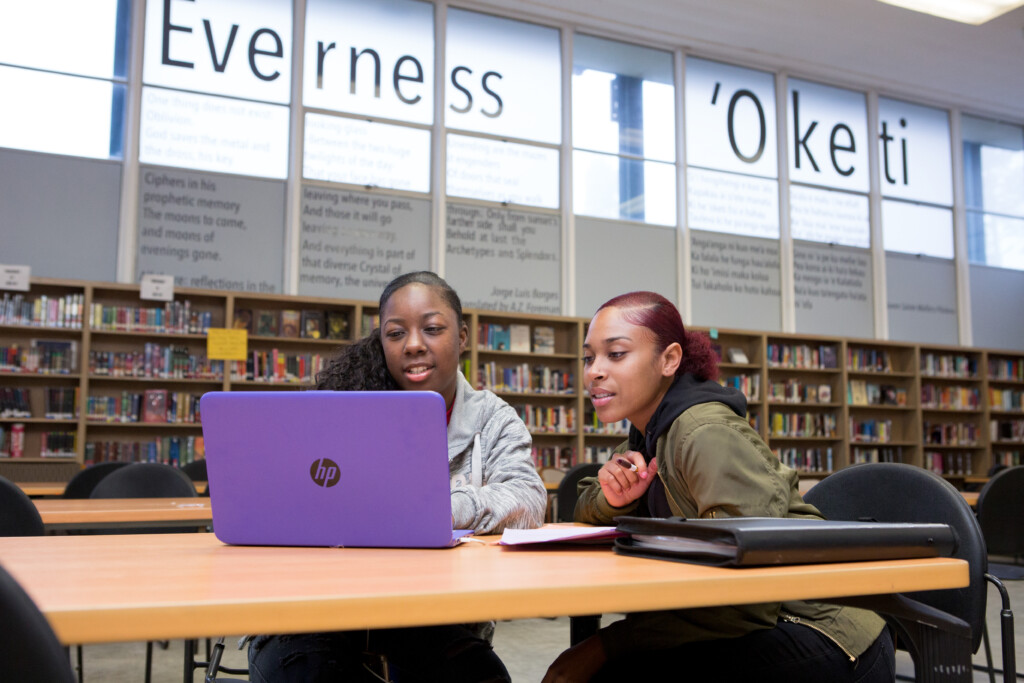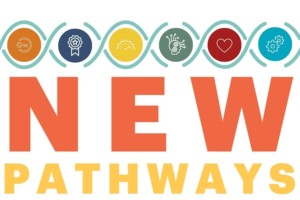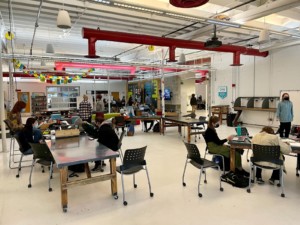A Flexible Solution to Workforce Development and Economic Mobility
Key Points
-
We need more innovative solutions that combine gig work, hospitality, and freelance opportunities to fit challenging schedules better.

According to the Center For Economic Research, the number of unemployed black teens and young adults is much higher than the number of unemployed white teens and young adults. Also, last year, there were more jobs for teens than at any other time in 14 years. At least 250,000 more teens now have jobs than before the pandemic. “37% of 16–19-year-olds had jobs or were looking for work last year, according to the Labor Department.”
Pathways programs, in or out of school, are helping to connect young people to employment and economic opportunities. These programs and platforms are successful when they make a wide variety of job opportunities accessible, providing young people with the freedom and choice to find jobs that uniquely fit into their lifestyles while giving them tools to establish a foundation of financial freedom.
These tools also are a boon to companies. They rapidly adjust to evolving workforce patterns and demands by making their job openings instantly available to a wide audience of untapped talent, using the power of AI to provide useful data to build, incentivize, and retain a robust talent pipeline.
The following attributes are core elements of effective early career matching tools:
- Diverse Opportunities: Entry-level jobs can range from gig-based roles to traditional employment, catering to the diverse preferences of today’s youth.
- AI-Driven Matching: The rise of AI technology enables seamless integration across busy schedules, varied interests, and rapidly changing lives.
- Economic Empowerment: These tools must enable teens to find jobs that fit their lifestyle and support their economic goals, providing them with resources and advice on financial literacy.
- Accountability and Reliability: Companies must find reliable youth talent quickly and easily, addressing the issue of high turnover and saving costs.
These platforms and tools cannot simply be job-finding tools; they must facilitate support and guidance tools to help youth navigate the complexities of modern employment. To better understand the emerging tools, I spoke to William Ward, the Founder and CEO of Flexie, about how Flexie is working to support black and brown youth.
AB: How does Flexie work? Mission and Vision?
WW: Flexie has the simple mission of democratizing youth economic mobility. Our vision is to create a world that empowers everyone to succeed and thrive financially. True to its mission and vision, the Flexie platform focuses on three key areas: access to job opportunities, connection to social capital, and financial literacy. Flexie connects teens and young adults to various jobs that match their lifestyles and career aspirations, so they will not have to choose between working and going to school but can flexibly do both.
We combined their ability to find flexible gigs, freelance projects, apprenticeships, and traditional jobs like internships and full-time and part-time jobs on a single platform. Young job seekers can create a profile on Flexie and specify their preferences for their desired jobs. We leverage AI to match them instantly when their preferred jobs become available. Soon, young people will have videos and training modules to guide them toward their career aspirations, a network of mentors in different professional fields to advise and help open doors for them, and tools to provide financial guidance and a path to creating generational wealth.
AB: How do you think education needs to change to empower students of color for the future workforce?
WW: As the workforce transitions from knowledge-based to skills-based, schools must play their part in preparing students to succeed. Research shows that over 70% of high schoolers feel unprepared for college or the workforce. This leaves many young people, 18 and over, who neither work nor go to school. Additionally, most young people, especially those from low-income communities, who eventually make it to college become worse off financially because they take on student loans and are not prepared for the workforce after graduation because they need more practical skills. Schools should incorporate practical work hours into their educational curriculum and encourage students to explore internships and apprenticeships early in their academic journeys. Flexie can be a strategic partner that connects schools and companies.
AB: How do you see the workforce changing to enable students to succeed?
WW: We see more companies embracing nontraditional work methods that provide better flexibility and options for high schoolers. For example, some companies working with Flexie have opened flexible shifts, which is a win-win for them and students working on the Flexie platform.
Companies can maintain a pool of rotating “Flexers” that cover their open shifts, while students can conveniently work schedules that match their availability. We also see a growing number of industrial companies taking on more high school interns and apprentices, which opens opportunities for early career and technical education competencies for high schoolers and provides a pathway to meaningful wages.
AB: Give me an example of a Flexie success story.
WW: Flexie is becoming a staple for our early adopters of high school and college students. They enjoy flexibility and access to financial independence. One of our early users, Debany, is now a high school student. Flexie was her first job when we started the pilot last year. Previously, Debany could not hold a regular job as the eldest of her six siblings, for whom she provided care and was actively involved in school activities. With Flexie, Debany could plan her work schedule around her availability and commit to school and personal obligations. Through Flexie, Debany eventually bought her first car. See Debany’s and other students’ stories.
AB: What organizations, schools, and companies use Flexie now?
WW: Flexie works with students from various high schools in Charlotte, including Julius Chambers, West Charlotte, Hawthorne, Charlotte Lab, and Olympic High School. We also work with national brands like Chick-fil-A and McDonald’s and will soon expand to clean energy and other industrial companies. We also partner with local organizations working with students, including Communities in Schools, MeckEd, and Road to Hire.
AB: What is your hope for Flexie’s future?
WW: I aim for Flexie to become a future-of-work leader for an evolving workforce. Flexie’s unique approach of allowing young job seekers to find nontraditional jobs (gigs, freelance projects, and apprenticeships) and traditional jobs (full-time, part-time, and internships) on a single platform and its proprietary algorithm helps companies quickly identify and cultivate high-performing and highly reliable early talent, positioning the company to become a future market leader.








0 Comments
Leave a Comment
Your email address will not be published. All fields are required.